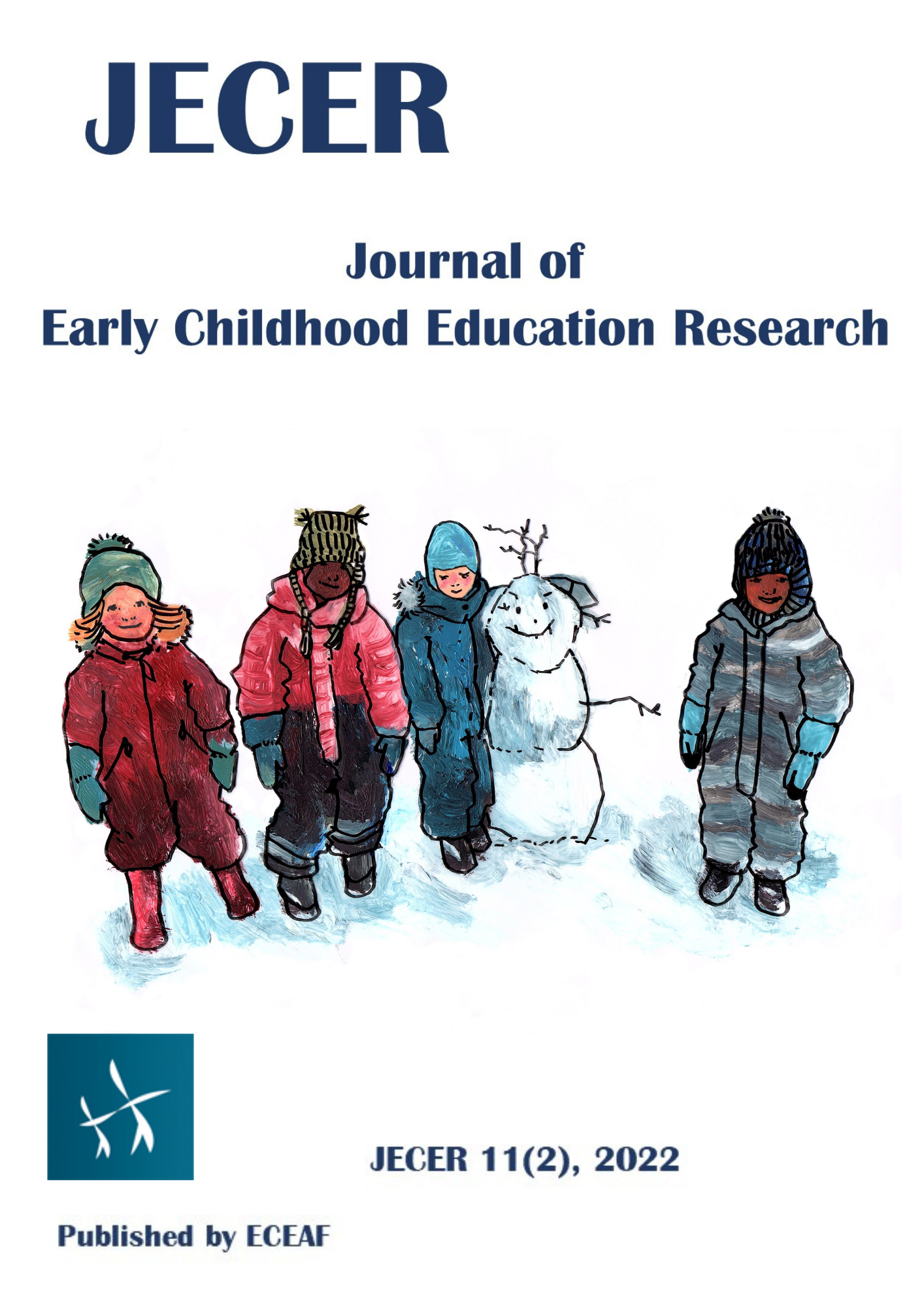Associations between early childhood education personell’s social support, stress, educational background and challenges in children’s self-regulation
Keywords:
social support, staff’s education, stress, children’s self-regulation challengesAbstract
Previous studies show that staff’s high stress can be associated with self-regulation challenges in children. Social support, on the other hand, is known to buffer stress at workplace. According to studies, the early childhood education and care staff’s educational background is also important for the quality of interaction in child groups, especially in stressful situations. A key hypothesis of the study was that the amount of social support received by the early education team members and team’s educational background affects their experience of stress and that has an effect to self-regulation challenges in child groups. The study’s data were collected in autumn 2017 by DAGIS research project (N = 202 and N = 702). Meditation analysis based on linear regression was used as the analysis method. The results showed that the team’s experienced stress mediated associations from the social support predictors to the self-regulation challenges in children. On the other hand, the team's educational background had no direct or stress-related indirect association to the self-regulation challenges in children. The study confirmed the results of previous studies on the links between the stress experienced by early childhood education and care staff and children's self-regulation skills and brought new insights into the role of stress experienced by staff as a mediating factor between the social support received by the early childhood education team and children’s self-regulation challenges. Further research is also needed, for example, how daycare units’ managers’ workload and stress affect to the interaction and pedagogical quality in child groups.

